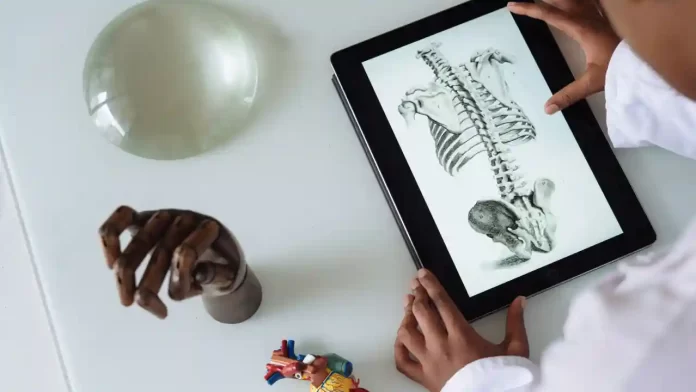
The Delicate Balance: Exploring A.I.’s Impact on Medical Education
As medical education evolves alongside technological advancements, the role of A.I. raises questions about the development of future doctors. The traditional path of hands-on experience and problem-solving is intertwined with the emergence of A.I.-assisted diagnostics.
A Changing Landscape: A.I.’s Influence on Medical Training
The education of medical professionals has long been characterized by rigorous training, emphasizing critical thinking and pattern recognition. However, as A.I. gains prominence in diagnosis, there’s a concern that the reliance on A.I. tools might hinder the development of these essential skills.
Dr. Adam Rodman, a seasoned internist, conducted an experiment involving medical students and the Chat GPT app. The results were astonishing—A.I. consistently provided correct diagnoses over 60% of the time for complex cases. This level of accuracy surpasses the individual capabilities of many medical students.

Navigating the Transition: Balancing Benefits and Drawbacks
As A.I. continues to demonstrate its prowess in diagnostics, the question arises: Should doctors in training lean heavily on A.I. assistance for diagnosis? The convenience of A.I. is undeniable, but it’s essential to strike a balance.
Dr. Rodman reflects on the potential loss of the traditional diagnostic journey. The process of grappling with unrelated symptoms to formulate a diagnosis is a cornerstone of medical training. It instills critical thinking, decision-making, and problem-solving skills that are invaluable in practice.
A Harmonious Blend: A Future with A.I.-Empowered Doctors
Rather than viewing A.I. as a replacement for doctors’ expertise, it’s more productive to consider it as an invaluable tool. As medicine evolves, the collaboration between human doctors and A.I. technology is likely to be harmonious.
A.I. has the potential to elevate diagnostic capabilities, ensuring that medical professionals make informed decisions. Doctors can harness the power of A.I. to quickly access a wealth of information, aiding them in reaching accurate diagnoses swiftly.
Fostering Excellence: A.I. as an Adjunct, Not a Substitute
The integration of A.I. can redefine medical excellence. Instead of replacing doctors, A.I. can act as an adjunct, amplifying their expertise. Particularly in settings with limited access to specialized consultation, A.I. can level the playing field, ensuring a consistent standard of care.
Dr. Eric Topol, a renowned cardiologist, envisions A.I. as a means to restore the human aspect of medicine. The technology’s capacity to handle administrative tasks can allow doctors to focus more on meaningful patient interactions, enhancing the patient-doctor relationship.
The Path Forward: A Collaborative Vision
In the journey towards the future of medicine, one thing remains certain—A.I. will play an integral role. The evolving landscape demands that doctors adapt and integrate A.I. tools seamlessly into their practice.
While A.I. can excel in diagnostics, it can never replicate the empathy, bedside manner, and human understanding that define the medical profession. The vision is clear: A.I. and doctors collaborating side by side, leveraging the strengths of each to provide optimal patient care.
Embracing Change: Medicine’s Future with A.I.
As the medical community navigates the uncharted waters of A.I.-enabled diagnostics, a transformative shift is underway. The landscape of medicine is evolving, blending the precision of A.I. with the compassion of human doctors.
The rise of A.I. as a diagnostic tool offers remarkable opportunities for efficiency and accuracy. However, its integration must be accompanied by the preservation of the qualities that define the medical profession—critical thinking, human connection, and compassionate care.
In this era of rapid technological advancement, the challenge lies in finding the equilibrium between the benefits of A.I. and the preservation of the art of medicine. By embracing the change and harnessing the potential of A.I., the medical field can continue its noble mission of healing and caring for patients in an evolving world.
Frequently Asked Questions (FAQs)
- How can doctors strike a balance between A.I. and critical thinking?Embracing A.I. as an adjunct rather than a substitute is key. Doctors should leverage A.I. for information and diagnosis while nurturing their critical thinking skills through hands-on experience.
- Can A.I. enhance patient-doctor relationships?Absolutely. A.I. can handle administrative tasks, enabling doctors to dedicate more time to patients, fostering a deeper connection and understanding.
- What can medical education do to prepare doctors for the A.I. era?Medical education should adapt to include A.I. training, emphasizing its role as a diagnostic tool and instilling skills that remain essential in a technologically driven healthcare landscape.
- Will A.I. replace the art of diagnosis?No, A.I. augments the diagnostic process but can’t replace the art of medical expertise, human understanding, and bedside manner.
- What’s the significance of A.I. in resource-constrained environments?A.I. can standardize care and elevate diagnostic accuracy in settings with limited access to specialists, ensuring consistent patient outcomes.


















